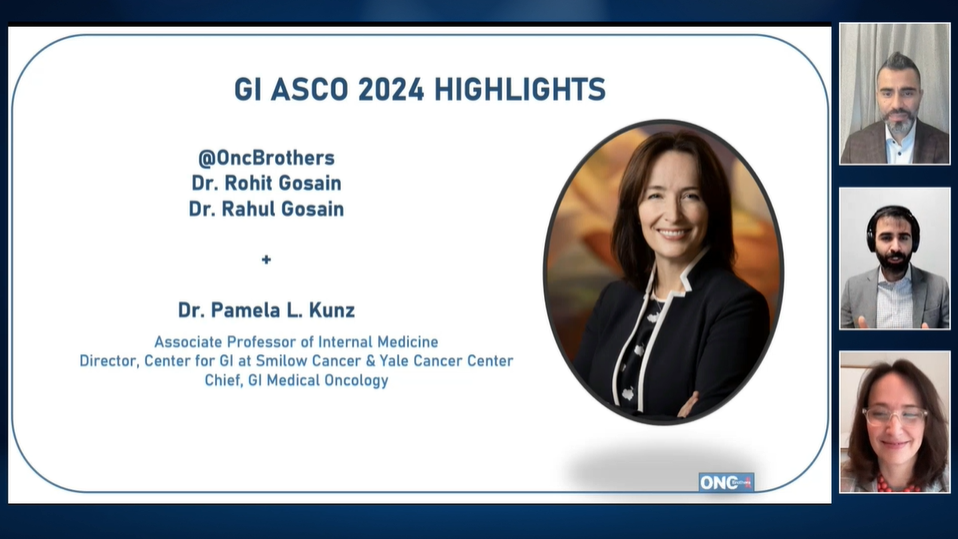Panitumumab Improves Survival in Chemorefractory CRC
Treatment with panitumumab improved overall survival compared with best supportive care in patients with chemorefractory KRAS wild-type metastatic colorectal cancer.
Sean E. Harper, MD, executive vice president of Research and Development at Amgen

Sean E. Harper, MD
Treatment with panitumumab (Vectibix) improved overall survival (OS) compared with best supportive care in patients with chemorefractoryKRASwild-type metastatic colorectal cancer (mCRC), according to findings from a phase III study released by Amgen, the developer of the drug.
In addition to patients withKRASwild-type CRC, OS was also improved in patients with wild-typeRAStumors, defined as those without alterations in exons 2, 3, and 4 ofKRASandNRAS. Complete data from the analysis were submitted for presentation at an upcoming medical conference and for publication, Amgen noted.
"Amgen has been at the forefront of researching personalized approaches to treating cancer, and the Vectibix clinical program continues to underscore the importance of identifying options for patients based on their cancer's genetic makeup," Sean E. Harper, MD, executive vice president of Research and Development at Amgen, said in a statement. "These positive overall survival results for Vectibix reinforce the importance of KRAS and RAS biomarkers in making treatment decisions in metastatic colorectal cancer."
In the phase III open-label study, patients received panitumumab at 6 mg/kg every 14 days. The investigator determined best supportive care. The primary endpoint of the study was OS, with secondary outcomes focused on progression-free survival (PFS), safety, and response.
Panitumumab was initially approved as a treatment for patients with mCRC in September 2006. Since that time, the label has undergone various revisions and changes, along with approvals for new indications.
In May 2014, the FDA approved panitumumab in combination with FOLFOX as a frontline treatment for patients withKRASwild-type mCRC along with a companion diagnostic. This approval was based on findings from two phase III clinical trials. In the first study, labeled PRIME, first-line panitumumab plus FOLFOX4 improved PFS by 1.6 months and OS by 4.4 months compared with FOLFOX4 alone in untreated patients withKRASwild-type mCRC. In the second trial, known as ASPECCT, median OS with single-agent panitumumab was found to be noninferior to cetuximab (Erbitux) in previously treated patients with KRAS wild-type mCRC.
Based on data from these trials, the initial accelerated approval granted in 2006 was transitioned to a full approval for panitumumab as a treatment for patients with KRAS wild-type mCRC.
“Vectibix is now the first approved biologic to show a significant survival benefit when combined with FOLFOX as a first-line treatment,” Lee S. Schwartzberg, MD, medical director of The West Clinic in Memphis, Tennessee, said in a press release at the time of the approval in 2014. “Vectibix has shown a significant benefit to patients with wild-type KRAS metastatic colorectal cancer when used with FOLFOX, which gives us a valuable new treatment option as we help patients fight this devastating disease.”
In early March 2015, the FDA revised the panitumumab label further to be specifically indicated for the treatment of patients withRASwild-type mCRC, as opposed toKRASalone. This change further solidified a continued shift toward an expanded testing strategy.
The updated label was preceded by a change to NCCN guidelines indicating that cetuximab and panitumumab should only be utilized in patients withKRAS/NRASwild-type mCRC. In a biomarker analysis of the phase III PRIME study that was published in theNew England Journal of Medicine, narrowing down treatment with panitumumab to patients with onlyRASwild-type mutations resulted in an improvement in OS of 5.8 months.
The median OS with panitumumab plus FOLFOX was 26.0 months compared with 20.2 months with FOLFOX alone in patients with wild-typeRASmCRC (HR = 0.78;P= .04). Moreover, this study demonstrated that patients withRASmutations had a 3.6-month worse median OS with panitumumab compared with FOLFOX alone (15.6 vs 19.2 months; HR = 1.25;P= .04).








